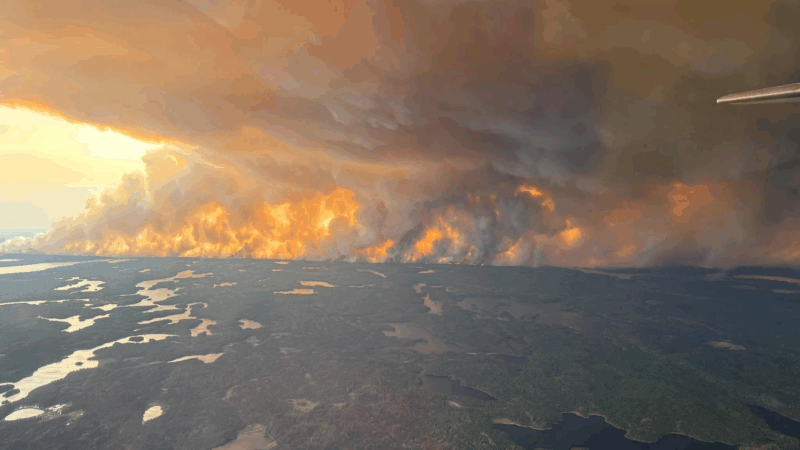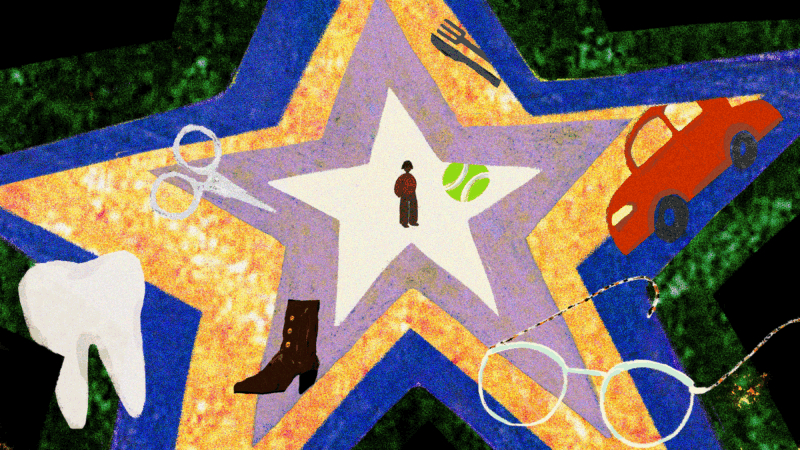Billowing smoke from Canadian wildfires wafts into the U.S.
Thick, billowing clouds of smoke are sweeping south from wildfires ravaging the central Canadian province of Manitoba into parts of the United States, compromising air quality for millions of Americans across several northern states.
The Manitoba wildfires have forced 17,000 people to flee the province, according to Manitoba Premier Wab Kinew, who called the evacuation the largest in recent history.
“With the wildfires in northern Manitoba intensifying, our government has triggered a provincewide state of emergency to help us through this crisis,” Kinew said in a statement on Wednesday.
The state of emergency will last 30 days and can be extended as needed.
“This is the largest evacuation Manitoba will have seen in most people’s living memory.”
As the out-of-control blazes continue to ravage the province’s prized wildlands, heavy clouds of smoke from the fires are making their way into the United States.
Meteorologists report that the smoke will waft into the Northern Plains and Midwest. The states most heavily impacted — Wisconsin, Michigan and Minnesota — have all issued air quality alerts for their residents.
Alerts in Wisconsin and Michigan counties are in effect until Saturday, with both states warning that the quality of air will become unhealthy for sensitive groups, including children, anyone with respiratory issues and older people.
In Minnesota, where the entire state is under alert for compromised air quality, the state’s Pollution Control Agency warned that air quality was expected to reach the red category — impacting both sensitive groups and some members of the general public. The Minnesota alert is in effect until Monday.
Recent studies have underscored the health dangers of breathing in wildfire smoke. This week, an analysis published in the journal Epidemiology found that the risk of going to the hospital for cardiorespiratory problems like hypertension or heart attack rose for months after exposure to smoke — showing that the health effects can linger long after the fires themselves have been put out.
This crop of wildfires has struck an already fire-weary nation, after two consecutive years of some of the most destructive wildfires on record.
The deadly 2023 wildfire season was the worst in Canada’s history, affecting all 13 of the country’s provinces. In 2024, while still dealing with fires carried over from the previous year, the nation fared only slightly better, experiencing its worst outbreak of wild blazes since 1995, excluding 2023.
Like in 2023, the impacts of the wildfires aren’t confined to Canada. Wildfire smoke is pouring over the border into the U.S., impacting air quality and health hundreds of miles from the fires themselves.
The U.S. has also battled increasingly devastating wildfires over recent years as climate change has made larger wildfires more likely and more intense.
Earlier this year, a deadly blaze ripped through Los Angeles for the month of January, killing at least 29 people and destroying more than 12,000 homes and buildings.
NPR’s Alejandra Borunda contributed to this report.
Pentagon shifts toward maintaining ties to Scouting
Months after NPR reported on the Pentagon's efforts to sever ties with Scouting America, efforts to maintain the partnership have new momentum
Why farmers in California are backing a giant solar farm
Many farmers have had to fallow land as a state law comes into effect limiting their access to water. There's now a push to develop some of that land… into solar farms.
Civil rights leaders say the racial progress Jesse Jackson fought for is under threat
Activists say racial progress won by the Rev. Jesse Jackson is under threat, as a new generation of leaders works to preserve hard-fought civil rights gains.
Tariffs cost American shoppers. They’re unlikely to get that money back
After the Supreme Court declared the emergency tariffs illegal, the refund process will be messy and will go to businesses first.
Every business wants your review. What’s with the feedback frenzy?
Customers want to read reviews and businesses need reviews to attract customers. But the constant demand for reviews could be creating a feedback backlash, experts say.
‘Get back to integrity’: Oklahoma’s Kevin Stitt on Republicans after Trump
NPR's Steve Inskeep asks Oklahoma Gov. Kevin Stitt about his spat with President Trump, immigration and the future of the Republican Party.






